Filter by
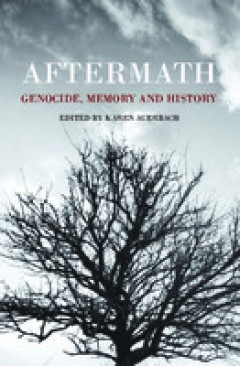
Aftermath
Aftermath: Genocide, Memory and History examines how genocide is remembered and represented in both popular and scholarly memory, integrating scholarship on the Holocaust with the study of other genocides through a comparative framework. Scholars from a range of disciplines re-evaluate narratives of past conflict to explore how memory of genocide is mobilised in the aftermath, tracing the devel…
- Edition
- -
- ISBN/ISSN
- -
- Collation
- -
- Series Title
- History
- Call Number
- -

Oslo Manual on Select Topics of the Law of Armed Conflict = Rules and Commentary
This new open access book provides a valuable restatement of the current law of armed conflict regarding hostilities in a diverse range of contexts: outer space, cyber operations, remote and autonomous weapons, undersea systems and devices, submarine cables, civilians participating in unmanned operations, military objectives by nature, civilian airliners, destruction of property, surrender, sea…
- Edition
- 1
- ISBN/ISSN
- 9783030391690
- Collation
- X, 151 hlm; ill., lamp.,
- Series Title
- -
- Call Number
- -

Limits to the European Union’s Normative Power in a Post-conflict Society :…
By shedding light on EULEX - the EU mission to Kosovo – this open access book investigates the EU’s peacebuilding activities in that country, in the light of the normative power theory in the post-conflict setting and peacebuilding theory. Ten years after the massive engagement of the EU in the country torn by war, the authors critically assess the effects of the EU projecting its normative…
- Edition
- -
- ISBN/ISSN
- 978-3-319-77824-2
- Collation
- XIV, 124
- Series Title
- SpringerBriefs in Population Studies (BRIEFSPOPULAT)
- Call Number
- 350 ZUP l

Do Exclusionary Rules Ensure a Fair Trial? : A Comparative Perspective on Ev…
This open access publication discusses exclusionary rules in different criminal justice systems. It is based on the findings of a research project in comparative law with a focus on the question of whether or not a fair trial can be secured through evidence exclusion. Part I explains the legal framework in which exclusionary rules function in six legal systems: Germany, Switzerland, People’s …
- Edition
- -
- ISBN/ISSN
- 978-3-030-12520-2
- Collation
- XV, 380
- Series Title
- Ius Gentium: Comparative Perspectives on Law and Justice (IUSGENT, volume 74)
- Call Number
- 320 DOE
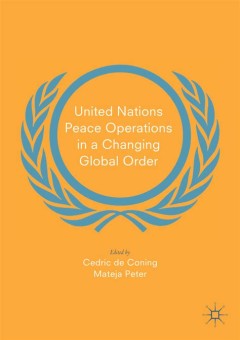
United Nations Peace Operations in a Changing Global Order
This open access book explores how UN peace operations are adapting to four transformational trends in the changing global order: (1) the rebalancing of relations between states of the global North and the global South; (2) the rise of regional organisations as providers of peace; (3) the rise of violent extremism and fundamentalist non-state actors; and (4) increasing demands from non-state ac…
- Edition
- -
- ISBN/ISSN
- 9783319991061
- Collation
- XXV, 334hlm; ill., lamp.,
- Series Title
- -
- Call Number
- -
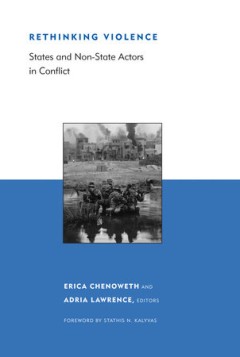
Rethinking violence: States and non-state actors in conflict
"Foreword by Stathis N. Kalyvas."--Cover.Although major wars between sovereign states have become rare contemporary world politics has been rife with internal conflict, ethnic cleansing, and violence against civilians. This book asks how, why, and when states and non-state actors use violence against one another."States, nationalist movements, and ethnic groups in conflict with one another ofte…
- Edition
- -
- ISBN/ISSN
- 9780262266086
- Collation
- 1 online resource (xiii, 285 pages) :illustrations, maps.
- Series Title
- -
- Call Number
- -
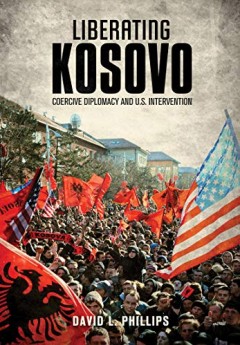
Liberating Kosovo: Coercive Diplomacy and U. S. Intervention
A compelling account of the diplomatic and military actions that led to Kosovo's independence and their implications for future U.S. and UN interventions.OCLC-licensed vendor bibliographic record.
- Edition
- -
- ISBN/ISSN
- 9780262306041
- Collation
- 1 online resource.
- Series Title
- -
- Call Number
- -

Indecision Points: George W. Bush and the Israeli-Palestinian Conflict
"Although George W. Bush memorably declared, 'I'm the decider, ' as president he was remarkably indecisive when it came to U.S. policy toward the Israeli-Palestinian conflict. His administration's policymaking featured an ongoing clash between moderate realists and conservative hard-liners inspired by right-wing religious ideas and a vision of democracy as cure-all. Riven by these competing age…
- Edition
- -
- ISBN/ISSN
- 9780262326186
- Collation
- 1 online resource (xi, 227 pages).
- Series Title
- -
- Call Number
- -
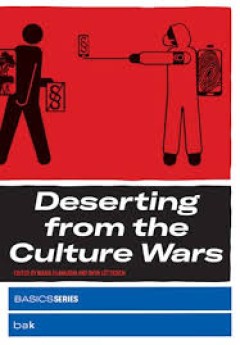
Deserting from the culture wars
Artists and writers consider a tactical desertion from the "culture wars"--a refusal to be distracted, an embrace of the emancipatory understanding of culture. Deserting from the Culture Wars reflects upon and intervenes in our current moment of ever-more polarizing ideological combat, often seen as the return of the "culture wars." How are these culture wars defined and waged Engaging in a the…
- Edition
- -
- ISBN/ISSN
- 9780262363686
- Collation
- 1 online resource (150 pages).
- Series Title
- -
- Call Number
- -
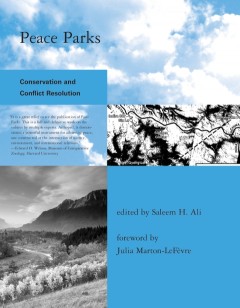
Peace parks :conservation and conflict resolution
An analysis of the potential for environmental cooperation in multijurisdictional conservation zones to contribute to political conflict resolution; includes case studies of existing parks and proposals for new ones.Although the 2004 Nobel Peace Prize was awarded to a Kenyan environmentalist, few have considered whether environmental conservation can contribute to peace-building in conflict zon…
- Edition
- -
- ISBN/ISSN
- 9780262266970
- Collation
- 1 online resource (xx, 406 pages) :illustrations, maps.
- Series Title
- -
- Call Number
- -
 Computer Science, Information & General Works
Computer Science, Information & General Works  Philosophy & Psychology
Philosophy & Psychology  Religion
Religion  Social Sciences
Social Sciences  Language
Language  Pure Science
Pure Science  Applied Sciences
Applied Sciences  Art & Recreation
Art & Recreation  Literature
Literature  History & Geography
History & Geography